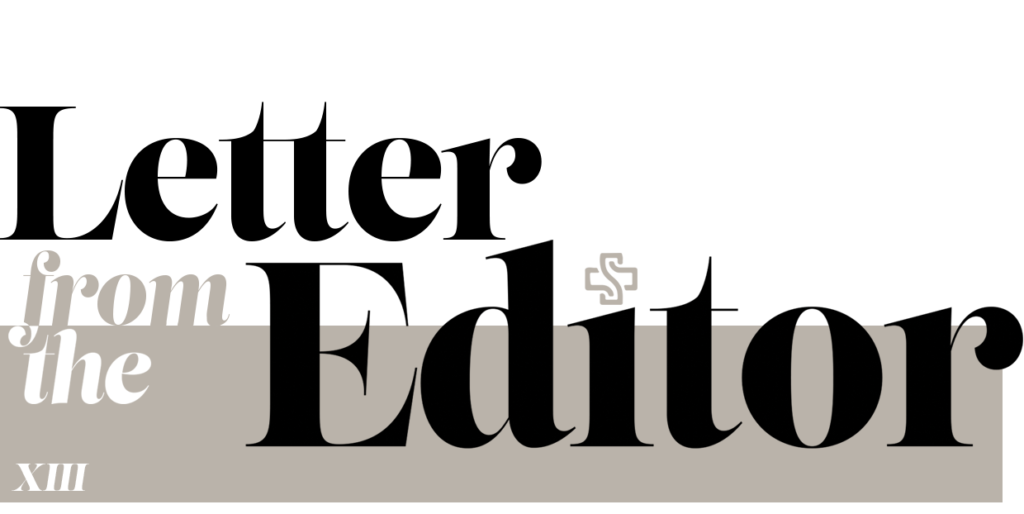
Dear Reader,
When I was younger, I often sat on my bed or the old white wingback which my mother had put in my room, wondering how I could ever really understand others. What are people like? What would it be like to be someone else? How do I know if someone else likes me – or even if they like me? How do I really know someone, and how could they know me? These are not terribly unusual questions – I’ve never been the most original thinker, mind you. But they are real, maddeningly difficult questions of the type which we intend to discuss in the current edition of Vanderbilt Synesis, Issue XIII: Hidden.
We settled on this theme for a simple reason. You see, we human beings have a dual penchant for avoiding mysteries and embracing them gleefully. We like either to know all of the answers or not to question too deeply – almost never to be left in the lurch. This very desire to avoid the mysterious, hidden things in life ironically guides us directly into the confusing maelstrom of the unknown. We don’t know, and often we don’t know how to know – but we so strongly want to know that we seek to learn. This desire, this internal compulsion to comprehend the wider world beyond our own simple psyches has driven human progress and ingenuity – both great goods. It has also led to immense terror – in fact, according to the Christian conception, a high-minded curiosity, the desire to be gods – instead of knowing and loving the Living God who created human beings, sharing in the divine life which he has so abundantly provided for – has led to all of the world’s problems. Curiosity can kill – but it doesn’t always.
Christianity does not discourage curiosity, or the innate desire to understand the unknown. It preaches, instead, against the rugged disordering of this desire – the longing to know things which are hidden for a reason, things which we needn’t know, or things which only God can and ought to know. Why? Not because we are stupid, but because we are not gods and cannot be. We recognize this fact, while also recognizing another significant fact: there are simple, observable, and yet subtle realities which we can and should discern, and which we often avoid. These truths are good and helpful – but only noticeable with a watchful eye.
As a result of this internal drive to know, we at Synesis have opted to embrace a significant challenge: we have decided to engage difficult questions ourselves, questions where faith and our own intellectual pursuits seem to intersect, and carefully consider them. As a result, in this new, entirely digital issue, you will find pieces detailing a variety of necessary issues. We’ve done this with the words of the Psalmist in mind: “I do not occupy myself with things / too great and too marvelous for me” (Ps. 131:1). Instead, we have opted for more down to earth questions – questions which are challenging, but which seem to have answers in abundance if only we would look. Different questions include: Why does God seem far off, and why is He hard to talk about? How do seemingly minor interactions affect people? Where is hope in times of crisis? One writer, our Executive Editor Micah Olson, has even engaged very similar questions to the ones which I mentioned at the beginning of this letter – questions about knowing and belonging. All of these are necessary, and while we cannot claim to know all of the answers, we can all say with confidence that the Christian faith helps us embrace the questions humbly, healthily, and helpfully.
My hope and prayer as you read these articles is a simple one. I hope that after reading these pieces you will understand with us the boldness of faith – the ability to trust God when life is trying and thoughts are challenging. God’s voice, we are reminded in the story of the prophet Elijah, does not come blustering and brash, with a metallic timbre. Instead, it comes soft and warm, a gentle whisper channeled by the whirring mountain breeze. I don’t pray that you will have a whirlwind experience like Job’s – but rather that you would listen as God speaks in subtle things, and ultimately as He reveals Himself in the truth of His Word.
Before finishing, I would like to thank the current editorial board and all of the writers of this current issue, which was plagued by a series of delays and setbacks and reappraisals – all of which have allowed the current slate of articles to appear on your screen, even if not in your hands.
In Christ,

Jackson Lee
Editor-In-Chief,
Vanderbilt Synesis
